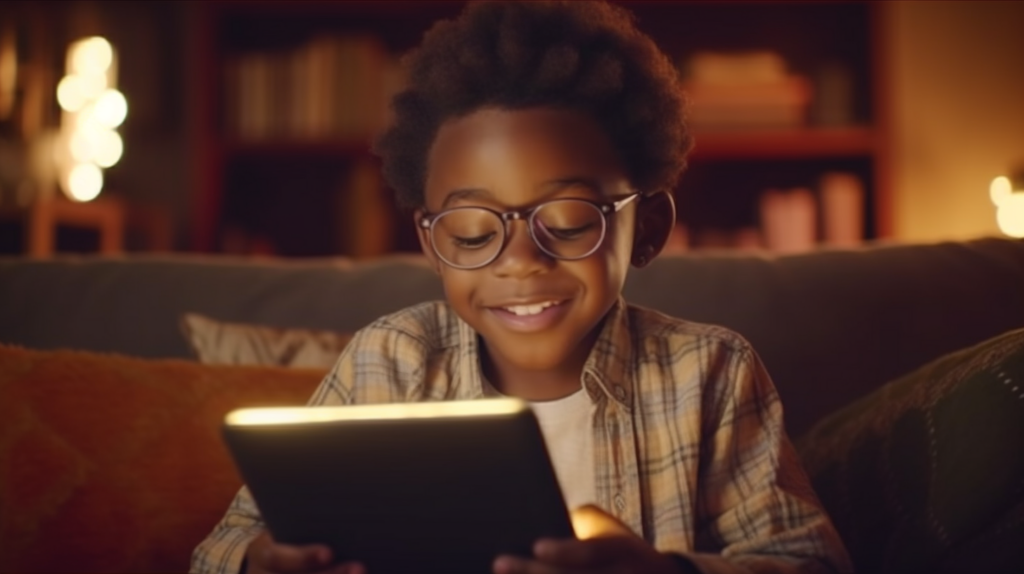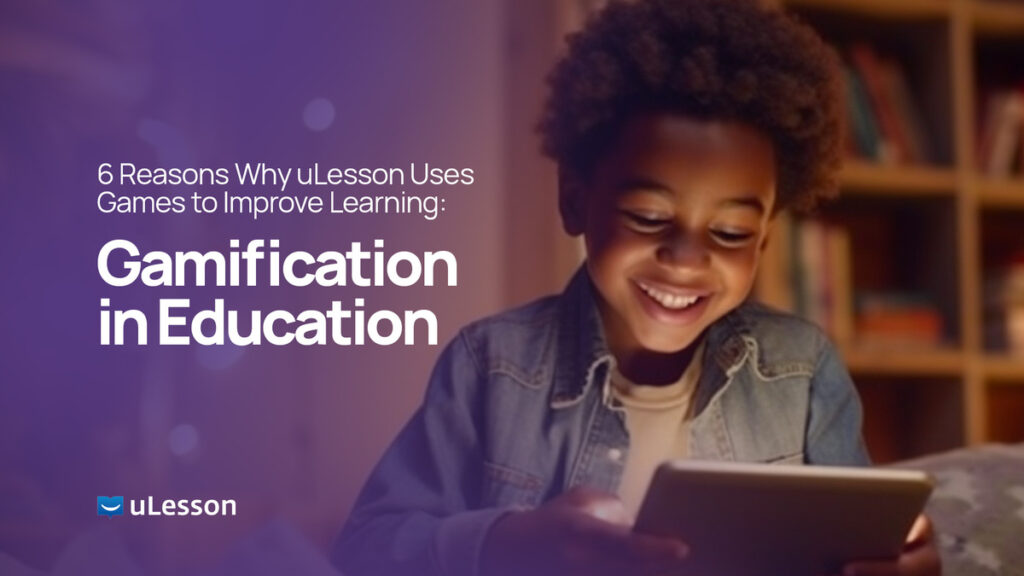Gamification in Education
In today’s world, learning can be quite challenging and tedious, especially for students who are not naturally inclined to study. With the amount of information available for students to study and understand, it can sometimes be difficult for them to focus and pay attention in class. Gamification is a technique powered by AI, that is used to make learning more engaging and fun, which helps students stay focused and learn more effectively. In recent years it has proven to be a highly effective tool that enhances learning outcomes.
In this article, we’ll explore six reasons why uLesson uses AI-powered games to improve learning.
What is Gamification?
Gamification is the integration of game-like elements like points, badges, levels, rewards, leaderboards, and challenges, plus, intelligent and empathetic feedback into non-gaming settings. Gamification in education uses game mechanics powered by AI (artificial intelligence), to make learning more engaging, interactive, fun, and enjoyable. The efficient use of gamification helps to motivate students, increase their engagement, and improve their learning outcomes.
How does gamification improve learning?
Gamification improves learning in a variety of ways. These ways are the major reasons why uLesson uses it to enhance learning.

Enhances Students’ Focus and Attention
AI-powered game mechanics in learning enhances students’ engagement and motivation in learning. The reasons are that games use various techniques to capture and hold players’ interest, such as challenges, suspense, and rewards. These techniques are used in educational settings, to help improve students’ focus and attention in class.
In the uLesson app, the Multiplayer Quiz feature is a perfect example of how gamification enhances focus and attention. Learners compete against other learners across the world, with the AI algorithm adapting the difficulty level based on their performance, creating a healthy sense of competition that keeps them engaged and focused while learning.
Aids Cognitive Development
Studies by the US Department of Health and human services show that games aid cognitive development. Some ways it does this are, games help to improve students:
- Problem-solving skills.
- Critical thinking skills.
- Spatial reasoning skills.
- Memory and their ability to learn new information.
Also read: A gift to help your child fall in love with learning.
Integrating game elements like adaptive puzzles among others, exposes students to varieties of cognitive challenges and helps them develop these significant skills. In the uLesson app, quizzes are dynamically adjusted based on the learner’s proficiency, which always assists students to develop their cognitive abilities, making them better problem solvers and critical thinkers in society.
Improves The Engagement of Students With Shorter Attention Span
Making learning more fun and engaging is a feat that gamification, especially AI-driven gamification, has achieved. Students with shorter attention spans find it more challenging to remain engaged in learning.
Incorporating AI-powered game elements such as personalized recommendations, real-time progress tracking, and adaptive difficulty levels, gamification creates a more engaging and interactive learning experience, which can be particularly beneficial for students with shorter attention spans.

Motivates students to want to learn further
Games are highly motivating for students because it provides a sense of achievement and progress that is rewarding, and it creates a sense of accomplishment that motivates them to want to learn more. The adaptive difficulty and performance-based rewards in the games in the uLesson’s App make students want to continue learning and exploring new topics.
Also read: uLesson’s Library Lifetime Access: Everything you need to know.
Boosts students’ progress and productivity
The productivity of students is often boosted when games are integrated into learning. This helps to break down complex tasks into smaller, more manageable steps. It also helps to provide students with immediate insights and feedback on their progress, which helps them stay on track, work harder, achieve better results, and avoid making mistakes.
Reinforces students’ learning experience and retention ability
Games effectively help to reinforce students’ learning experience and retention ability in several ways, by creating a more engaging and interactive learning environment that helps students to remember key concepts and ideas. The Multiplayer Quiz feature, powered by AI, not only provides an exciting competitive experience but also adapts the questions to reinforce the learner’s knowledge and retention.
Gamification in education is a powerful tool that can be used to improve learning. When used effectively, gamification can help to motivate students, increase their engagement, and improve their learning outcomes. The games in the uLesson app show how gamification can be used to create a fun and engaging learning experience. By leveraging games, uLesson is shaping a future where learning becomes a more fun and effective journey for students worldwide.




10 Comments
I love this app but I am having difficulty to join you
Hello, Abasifreke.
We are delighted to know you love the uLesson App.
Kindly click to download
To know how to navigate the app, click here to see how to.
What do I have to do to join this app?
From what Doris Ma’aji Pada looks like, it’s very helpful.
Hi, Jame. To join other learners earning on the uLesson app, simply download the uLesson app or use the web version here.
how can i get a free for year 8 class
H, Juanita. Just download the uLesson app for free here or you can use the web version instead.
Register on the app, select your grade, and love learning.
That’s great 👍
I love ULesson and I want to learn and use the app in preparing my lesson note as a teacher.
How do I go about it, please ?
Hi, Victoria. The uLesson team has drafted lesson plans, objectives, and assessments for teachers in the Teachers’ Guide. If your school has purchased the uLesson Classboard or downloaded the uLesson Classboard software, you’ll have access to it.
Hi, Victoria. We have just the gamified practice tests and multiplayer quiz for now.